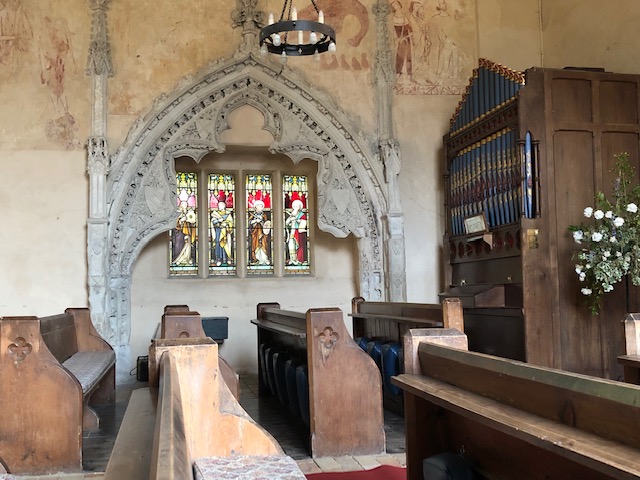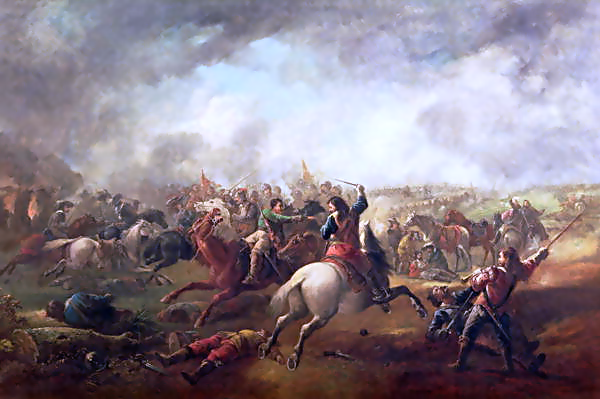What went on in Belchamp Walter leading up to, during and after the English Civil War
The period of English History 1642 - 1651.

The events that led to the English Civil war and the resulting consequences of the war are of huge signifiance to Belchamp Walter.
The fact that Oliver Raymond was part of both Oliver Cromwell's Protectrate parliaments and the possible use of the christian name of Philip Honywood indicate that there were some sympathies with the anti-royalist/puritan ethos.
The destruction of the chantry chapel in St. Mary the Virgin
was originally thought, by the author of this website, to be that of a Civil War "clean-up", it is now thought that
it was removed 1574 - at the end of the Tudor Reformation.
Something weird was definitely going on in the 1640's
Apart from the destruction of Sir John Boutetort's Chantry there are some pretty strange marriages and changes in inheritance. One can't help conclude that there was a large measure of politics involved here.
This page is part of an on-going research project on the history of Belchamp Walter and the manor of Belchamp Walter.
If you have found it making a web search looking for geneological or other information on the village then please bookmark this page and return often as I am likely to make regular updates. If you delve deeper into this website you will find many other pages similar to this one.
Top
Prior to the Civil War
The sale of Belchamp Hall and Manor to John Raymond I in 1611
Oliver Raymond, the son of John Raymond I, married Frances Harris in 1653 (the date of the Constitution of the Protectrate Parliament).
The Civil War started in 1642, the marriage occured 2 years after the war had ended.
The marriage was within the period of the British Interregnum - January 1649 - May 1660.
The Protectorate Parliaments - from the parliament.uk website
The 'Instrument of Government' (the new written constitution of 1653) placed great power in the executive formed by the 'Protector' (the role of national governor set out in the Instrument) and the 'Council of State', many of whose members were military commanders. The country continued to be governed by military rule however according to the Instrument, the Protector was to summon Parliament at least once every three years.
Also Parliament could not be dissolved without its own approval before a minimum of five months had elapsed.
When Cromwell's first Parliament met in September 1654, it was full of former Members of the Rump,
"Commonwealthmen", angered by his dissolution of their government. They blocked proceedings over the next
months as they discussed little else but plans to modify the Instrument to the advantage of Parliament.
Cromwell dissolved this Parliament, which had passed no laws during its entire sitting, in January 1655.
Rump Parliament - 1653
https://en.wikipedia.org/wiki/Rump_Parliament
Oliver R
Robert Devereux, 3rd Earl of Essex
Referred to as "Essex" in terms of the narrative of the Civil War.
Robert Devereux, 3rd Earl of Essex, KB, PC (/ˈdɛvəˌruː/; 11 January 1591 – 14 September 1646) was an English Parliamentarian
and soldier during the first half of the 17th century. With the start of the Civil War in 1642, he became the first
Captain-General and Chief Commander of the Parliamentarian army, also known as the Roundheads. However, he was unable
and unwilling to score a decisive blow against the Royalist army of King Charles I. He was eventually overshadowed by the
ascendancy of Oliver Cromwell and Thomas Fairfax, and resigned his commission in 1646.

